No Relief in Sight for Pandemic-Hit Musicians
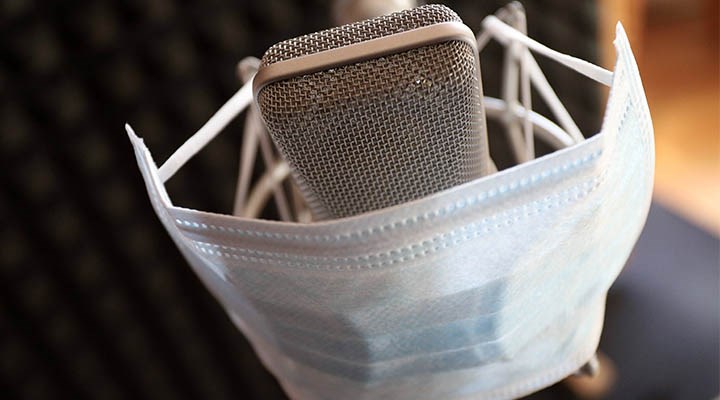
Even though there are stronger hopes for an end to the pandemic, musicians remain worried as only meager measures were taken to support the music industry. Completely ignored during the pandemic, musicians complain that their profession is not even perceived as a 'real job'.
The increased pace of the vaccine roll-out inspires hopes for a return to the normal. It is expected that new measures will be announced in July in Turkey and the restrictions will be eased further. Yet the future remains uncertain for musicians, prevented from doing their job since the onset of the pandemic. We spoke with Emre Akbay, Batuhan Kurnaz and Veys Çolak about the difficulties that musicians face, and their future projections.
Emre Akbay: I Returned to My Parents’ Home During the Pandemic
A musician who rose to prominence with his original songs, Emre Akbay had to return to his family home in Kütahya as he could not make ends meet during the pandemic: “Like all musicians, I became unemployed during the pandemic. I used to live in Istanbul’s Kadıköy district, and because I couldn’t pay the rent, I had to return to my parents’ house in Kütahya. Of course, since it is next to impossible to access recording equipment in Kütahya, I have to make immense efforts to continue working on my music. Even the Turkish saying “Squeezing water out of stone” would be inadequate to describe my efforts. Around me, I see that my musician and tonmeister friends who used to make a living from live performances, are also going through the roughest patch of their lives -both financially and psychologically.”
Akbay says that they would have felt much safer had the government’s assistance to musicians been sufficient and well-planned: “One night, at 01:30 a.m., the Ministry of Culture and Tourism announced on its Twitter account that they would donate three thousand TL to musicians under their Don’t Let the Music Stop Project. Of course, this was a response to the public uproar. I think we would have felt much more secure and confident had aid like this been more frequent since March 2020.”
“We Should Create Civil Initiatives Instead of Waiting for State Policies”
Akbay underscores the importance of musicians’ self-organization, saying, “From a theoretical perspective, we are the state in fact. Particularly in a country described as a republic, the state is the people themselves.” Akbay points to the need to overcome shortcomings in terms of civil initiative: “Can’t we plan revenue models at local government level, take steps to implement these projects, and then expand the models that work?… We waited for the government to formulate policies for us, like those in other countries. This wait was a major factor that led to our current frustration. We wasted much time, and then got very surprised at bureaucratic processes that are not in fact so surprising, asking ourselves why, consumed by anger. A few of my fellow musicians set up their own assistance groups and implemented assistance projects. Help came only from each other. We are quite alone otherwise…”, Akbay says.
Finally, Emre Akbay states that he is a member of a professional association, but still thinks that minimum wage, social insurance and similar rights are still far from the reach of musicians: “I think musicians will continue to show solidarity by helping each other out in the near future.”
Batuhan Kurnaz: “They Don’t See Music as ‘A Real Job’”
Batuhan Kurnaz, the guitar player of the band Sattas, indicates that the members of his group are in a slightly more advantageous position when compared to most stage professionals, since some of them have jobs outside music as well, which in fact gives a clear idea about the conditions of the music industry in Turkey. Kurnaz states, “Unfortunately, music is often not seen as a real job in this country and musicians don’t have a stable income,” thus pointing to the main underlying problem for musicians.
Kurnaz argues that musicians were hesitant to ask for help during the period of uncertainty at the onset of the pandemic: “When, at the beginning of the pandemic, concerts got canceled and people questioned whether the state would provide any support, when no industry had received any support yet, the musicians were in fact very hesitant to ask for assistance.” Kurnaz suggests that this was because of the perception that ‘music is not a real job’, which has laid strong roots over the decades: “This is exactly what was said to those musicians who underlined their dire situation when the government announced aid packages for other industries: ‘Why don’t you get a real job?’ It is needless to say how hurtful it is to hear that. As dear Burhan Şeşen once asked, ‘Didn’t you ever listen to our songs when you were lovelorn?’”, Kurnaz says.
“They Think that Music is Produced for Free, Without Any Effort”
Batuhan Kurnaz says that they have each spent years to master their profession, and made huge investments of time and money to become musicians. Kurnaz suggests that nevertheless the general perspective towards musicians is quite negative: “Some people think that we just grabbed a guitar and hit the road to become a musician, or that the songs we sing reach their devices by some miracle. And the fact that this perspective has not changed even in such a period hurts us deep inside. Too many musicians and stage professionals, numbering in the hundreds, killed themselves during the pandemic. This state of despair is a huge problem for everyone.”
“The Problem is Too Great for Ahbap or Similar Initiatives to Tackle”
Stating that he welcomes Haluk Levent and his association Ahbap’s efforts to provide financial support for musicians, Kurnaz nevertheless emphasizes that the problem is too great to be resolved by such initiatives: “Unfortunately, Mr. Levent or Ahbap cannot tackle this problem by themselves. As musicians, we need to ask ourselves as well why we are so unorganized and why we are invisible in the eyes of the state. Why can’t we raise a united voice? For example, over the decades, we have collaborated with copyright associations, presenting them our works and sample recordings to document our status as musicians. Now, before offering us assistance, the state demands us to prove that we are musicians. Well, we have already proven this to the copyright associations, and it may not be their job to protect us, but they could at least communicate to the government who are in fact musicians based on their documents. I think the biggest lesson we should draw here is that, as musicians, we need to forge our unity and act proactively to avoid similar situations in the future.”
Veys Çolak: “We Have Never Felt So Isolated Before”
Having accompanied numerous bands and singers on his guitar, and composed his original songs, Veys Çolak indicates that musicians went unemployed for 1.5 years during the pandemic and got depressed, and that some musicians had to return to their hometown: “Especially musicians who are married and have children are in severe depression. I also have friends who had to pack their things and return to their hometown so as to survive. We are all trying to help each other out and also continue to make music to stay alive. Actually, we are making music not to go nuts.”
Saying that musicians have never felt so isolated before, Çolak points to musicians’ failure to organize: “Most musicians I know are not in favor of getting organized. Today’s society is almost completely individualistic anyway. Everyone is concerned about making ends meet. However, in that case, your fate is determined by people who do not really value any arts discipline. Moreover, as musicians, we have a big problem of organizing. Furthermore, no one really knows whether we can really get organized in this digital world. Yes, things would have been much better if we had set up a platform to join forces. We could have gone through the entire pandemic with more ease. In fact, I think that this is necessary not only during the pandemic but all the time -to win our professional or human rights. Yet generations have grown up with fear and the country has never been left in peace. Most musicians I know are not in favor of getting organized. At first, they embrace their instruments so as to cope with the harsh reality and responsibilities caused by living in such a country, yet in time, they embrace their instruments to escape that reality and responsibility altogether.”
“For Many Years, I Haven’t Had Much Hope About the State and Society”
Stating that some of his musician friends also committed suicide, Çolak adds that the hardest thing is to know that no one will say, “You are not alone”: “I don’t think the exact number is known, but unfortunately many musicians have killed themselves. Some of them were my friends. Whether a musician or not, it is very saddening after all for anyone to commit suicide because of unemployment or economic hardship. Musicians who made money only in live performances are going through a very rough patch. For many years, I haven’t had much hope about the state and society. Of course, like everyone else, we expected to receive financial and moral assistance. The financial support was insufficient. Some of us got that, some of us didn’t. Yet as I said before, I didn’t even expect that. Even if someone had said ‘Yes, your situation is tough, but we stand by you, you are not alone’, this would have provided some psychological relief. The hardest thing is to know that no one will say, ‘You are not alone.’”
‘OLTA Solidarity Group Has Begun Work on its 8. Album’
Saying that many social aid organizations such as Ahbap are working hard to support musicians, Veys Çolak adds that musicians are also trying to establish a solidarity network among themselves, and mentions the OLTA project: “We decided to create a series of solidarity albums called OLTA with fellow musicians, and have already released 7. Now work on the 8th is almost finished. We have set up a team of volunteers. Musicians donate their songs and we publish them on digital platforms. We share the proceeds with those music professionals in a really tough situation. The project continues to grow as well-renowned names join us and we draw more attention on social media. Those who want to support us can simply listen to and share OLTA albums on digital platforms.”



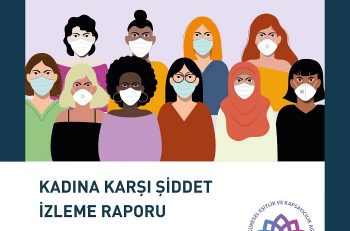





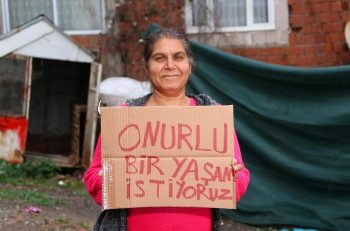

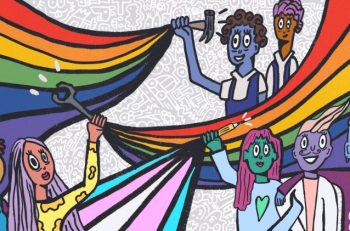
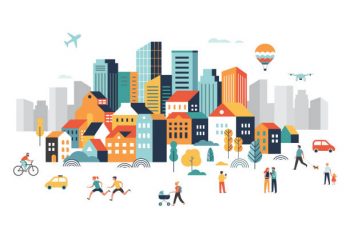

Bizi Takip Edin